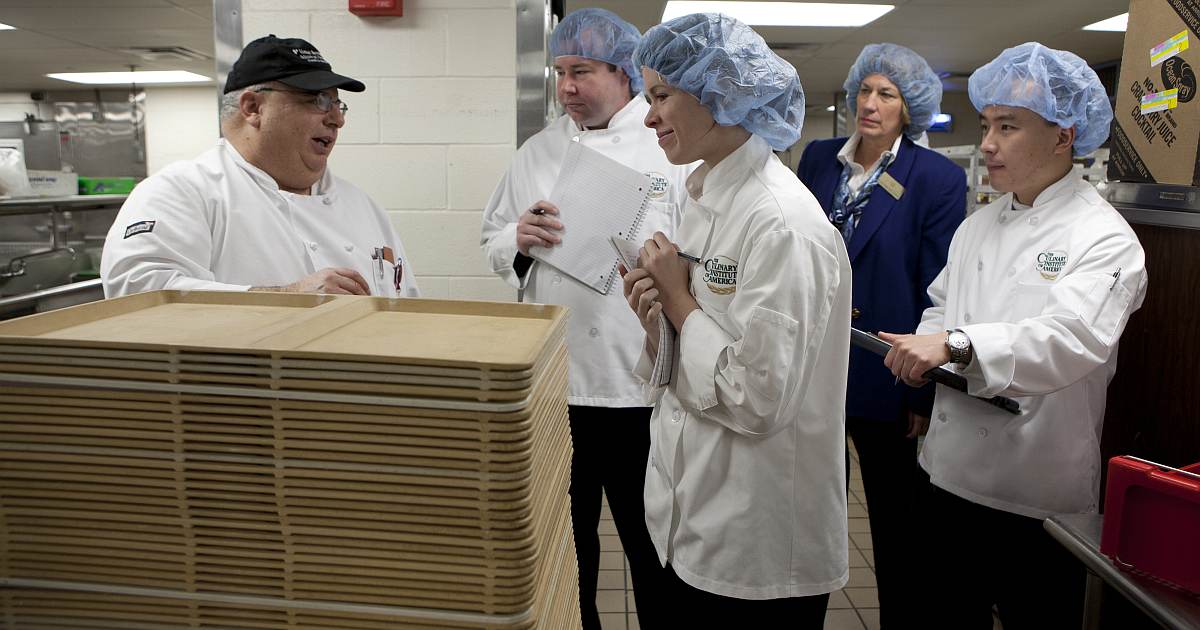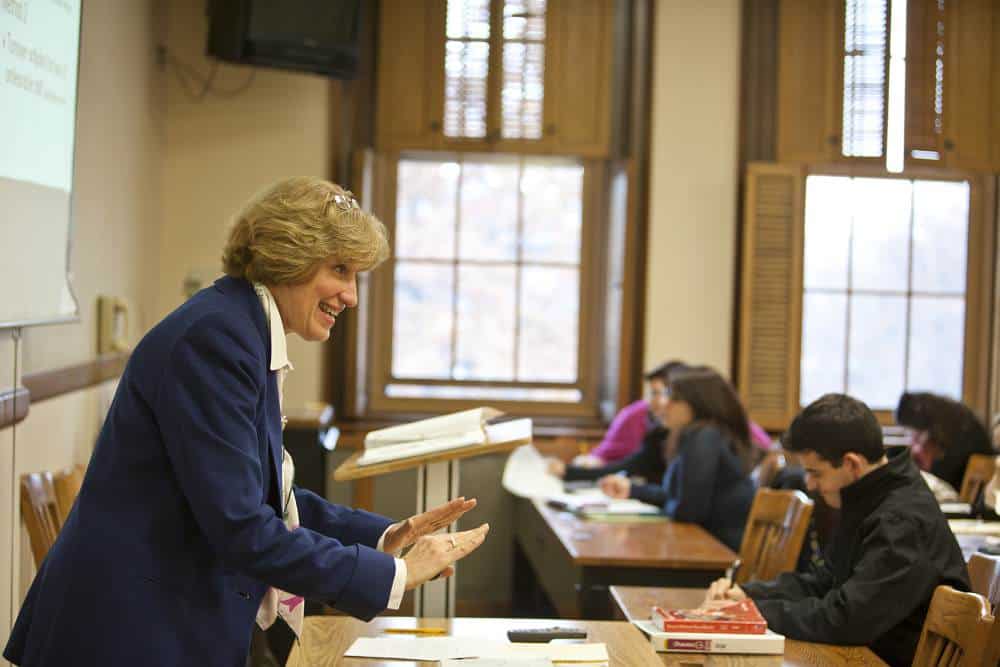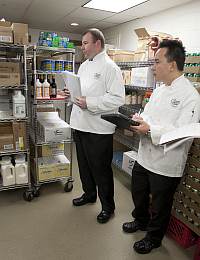
“If the food is better, then it helps people get better.” That’s what recent CIA graduate Morgan Delepine says about the importance of food served in hospitals, assisted living residences, and continuing care retirement communities (CCRCs). This philosophy is the driving force behind one of the fastest-growing food industry segments. And it’s why CIA students who take the Foodservice Management in Health Care course can just about write their own ticket for a rewarding, well-paying career.

With 30 years in healthcare, Associate Professor of Business Management Lynne Eddy, RDN, FAND is the brains, heart, and soul behind the senior-level elective she created in 2009. The course includes a field trip to the kitchens of Memorial Sloan Kettering Cancer Center, numerous industry guest speakers, and a capstone project where students visit, evaluate, and report on the foodservice operations of a local hospital or CCRC. Through these experiences, students not only learn about operations, nutrition, menus, and food delivery systems, they also get a window into what it’s like to be a patient. They learn to consider medical issues like loss of appetite, swallowing difficulties, and effects of conditions like cancer, diabetes, and allergies when designing menus.
Customer satisfaction is an important consideration as well. “With the aging of the Baby Boomers, health care is where the money is,” Professor Eddy says. “Boomers have worked hard, they’ve traveled the world, and they have extremely high expectations. They want the same quality of food in hospitals and CCRCs as they have enjoyed throughout their lives—it had better be that good. That’s why this field is a perfect fit for our graduates.” And that’s why health care foodservice employers come to the CIA.

“This course and Professor Eddy’s extensive connections to this industry segment have created an awareness of opportunity among our students,” says Associate Director of Career Services Ron Hayes ’02. “Employers such as Unidine and Morrison Healthcare regularly recruit at our Career Fairs.” Professor Eddy adds, “Companies tell me, ‘If they’ve passed your course and they’re a graduate of the CIA, we know they have the quality skills.’ It’s the CIA reputation; our grads are stellar.”
Morgan Delepine ’17 is one such graduate. He’s part of the hospitality management travel team for Unidine, a position he learned about when District Manager Chris Garrand ’02 served as a guest speaker for the class. “I’ll be traveling with a team of 30 to 60 people to health care facilities who’ve put out bids to get help in restructuring their operations, staffing, and menus,” Morgan says. “I like this position because it uses everything I’ve learned—culinary, nutrition, management. And there is so much growth available within the company.”
Classmate Emily Horta ’17 is another grad whose experience in the Foodservice Management in Health Care course has put her on an exciting career track. “I’ve always been interested in health care and nutrition, and I feel like this is the next big thing in foodservice,” she says.

Emily, who helped Restaurant Associates Executive Chef Mike Smith with the opening of the Oasis kitchen at The Egg on the CIA campus, started working full-time for RA (a subsidiary of Compass Group) right after graduating. “I’ll be working for Chef Mike for at least six months, and pursuing my CDM (Certified Dietary Manager credential) while I’m here,” Emily says. “I’m hoping to ultimately get an MIT position with Compass in-patient services and also earn a degree in nutrition.”
Morgan’s and Emily’s enthusiasm and success come as no surprise to Professor Eddy. “Health care is an appealing place for our graduates to work because of the more-traditional hours, generous pay and benefits, recognition, and the fact that you can really make a difference,” she says. “They really become passionate about this field. I get Christmas cards from former students thanking me for introducing them to it.”
Due in part to the success and popularity of the Foodservice Management in Health Care course, future plans at the college include a Managed Services concentration open to students in the Bachelor of Science in Hospitality Management degree program. The concentration will cover foodservice management not only in hospitals and long-term care facilities, but also corporations, colleges, and universities.
